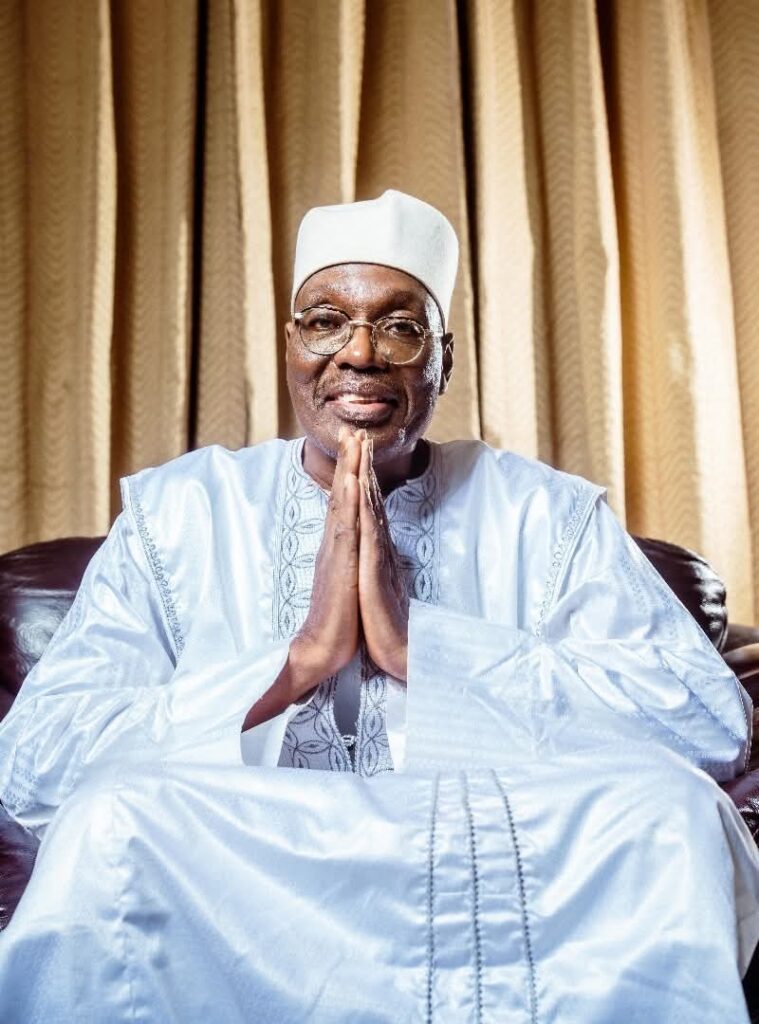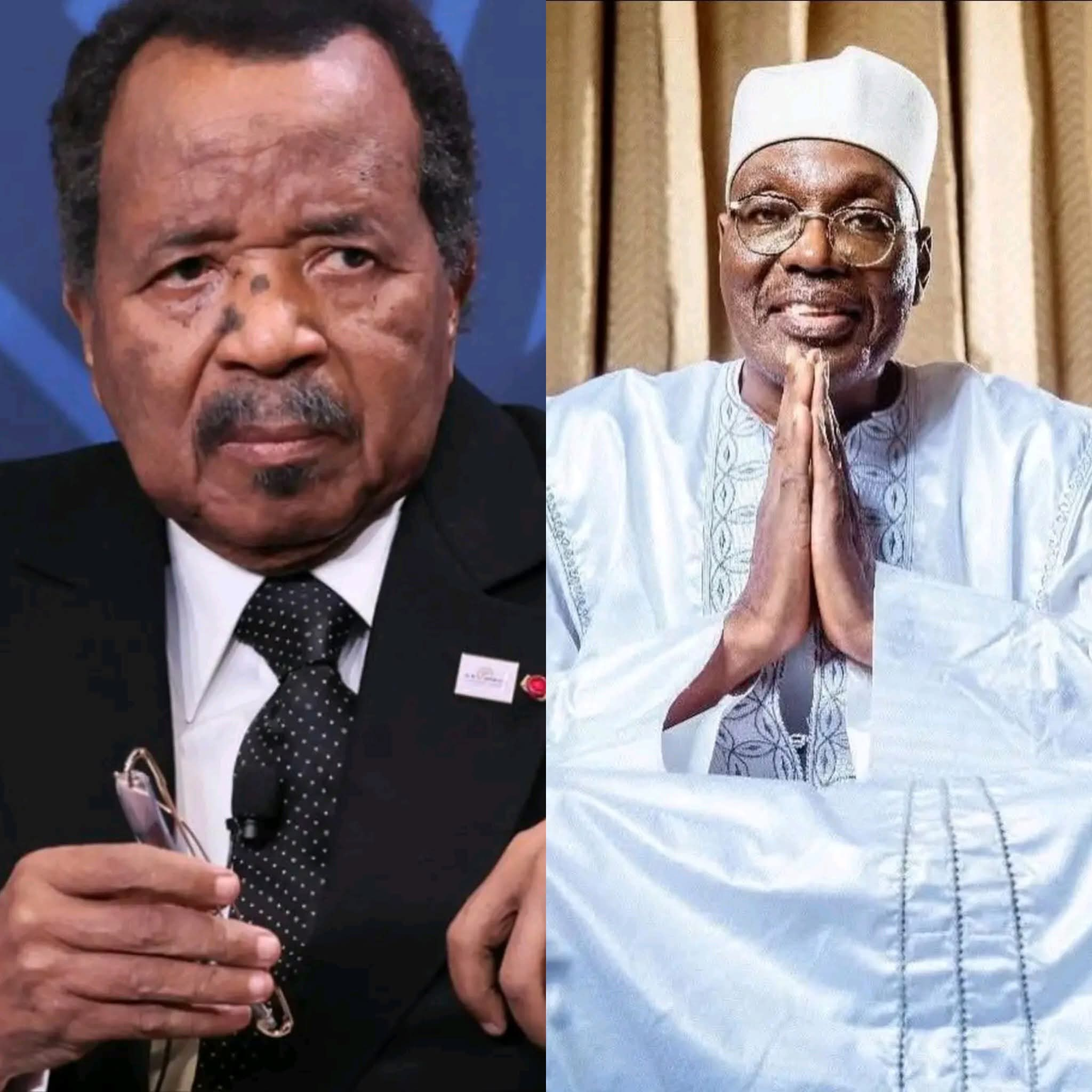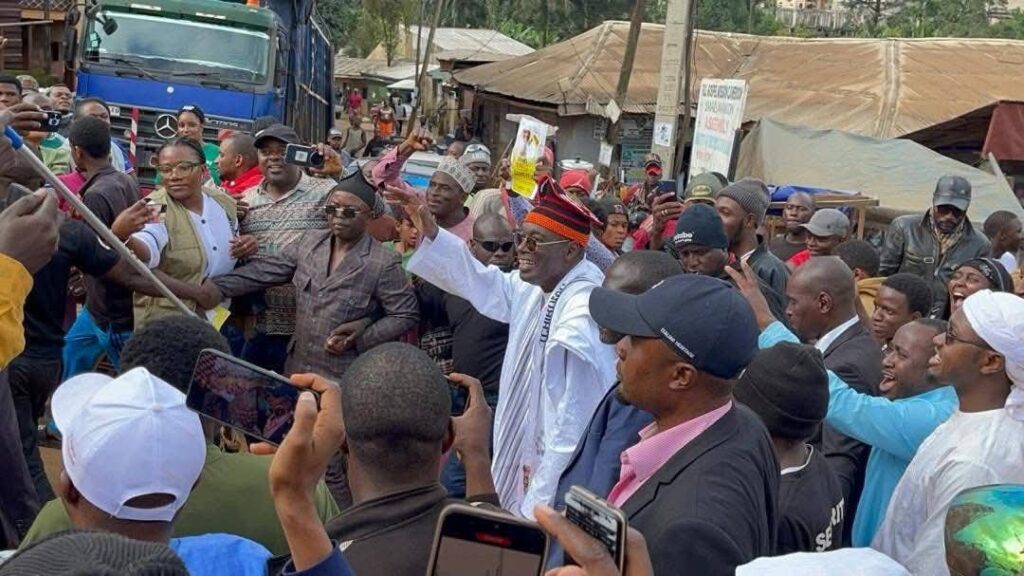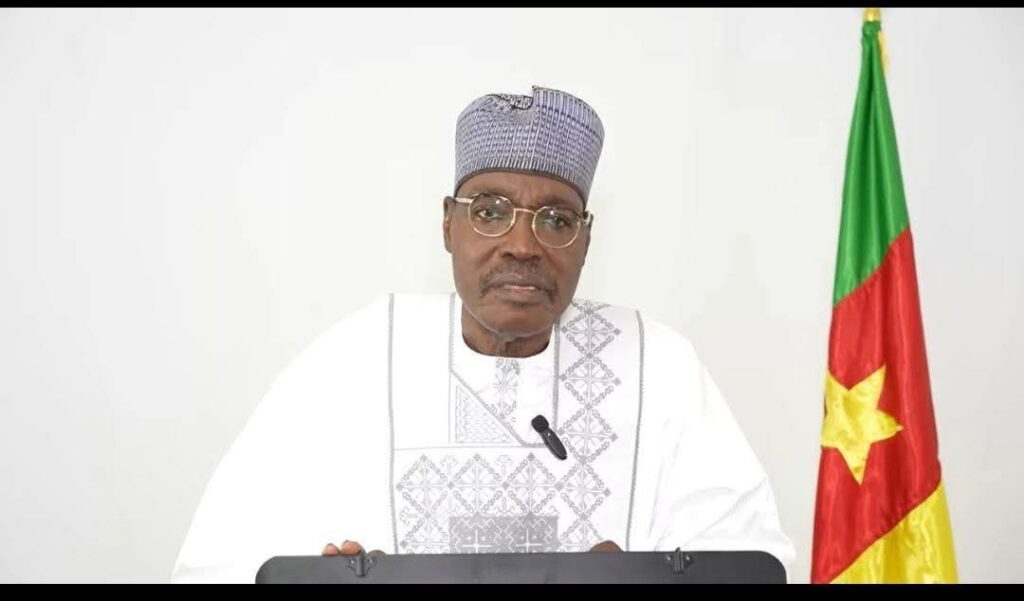By Elie Smith
(Yaoundé, 23rd October 2025)
Paris may be calm, stylish, and civilised—but Cameroon has been witnessing a political storm since the 12th October presidential election, an event that has shaken the foundations of a 42-year-old regime and rewritten the country’s political script.
The outcome may soon declare Paul Biya the winner, but the “real victor” is unmistakably Issa Tchiroma Bakary. His meteoric rise has destroyed the political careers of nearly every major contender: Maurice Kamto, Bello Bouba Maigari, Cabral Libii, Joshua Osih, and even Paul Biya himself.
What began on 12th October was more than an election—it was the first phase of a three-round political match, the opening act of a drama that will culminate with the legislative and municipal elections in 2026.Unlike John Fru Ndi in 1992 or Maurice Kamto in 2018, Tchiroma will not boycott or hesitate. He has learned from history: Fru Ndi once told me that boycotting the 1992 legislative elections was “a colossal mistake I’ll regret until I leave this world.” Kamto repeated that same miscalculation, which ultimately led to his political demise. Tchiroma’s strategy is total conquest, not symbolic defiance.
A Man Who Rose From Prison to Promise

Issa Tchiroma Bakary’s journey is the stuff of legend. A former political prisoner, he was arrested after the 1984 coup d’état attempt against Paul Biya and narrowly escaped execution—how remains a mystery. In prison, he learned English, transforming captivity into opportunity.
After his release in the early 1990s, he joined John Fru Ndi’s SDF, supporting him during the historic 1992 presidential election. Later, Tchiroma helped form the UNDP with Samuel Eboua and Amadou Mustapha, only to later push Samuel Eboua aside and hand leadership to Bello Bouba Maigari, who had returned from exile. Years later, he also fell out with Bello Bouba.
His ministerial career saw him as Minister of Transport, then Minister of Communication and Government Spokesman, and after the 2018 election, Minister of Vocational Training. At every stage, he played his cards with resilience, audacity, and strategic foresight, often underestimated but never irrelevant.
The End of the Biya Era
For 42 years, Paul Biya ruled on a formula of mystique, distance, and control. He surrounded himself with elites who obeyed him rather than the people, fostered tribal and ancestral divisions, and punished those who told him the truth. Corruption and decaying infrastructure became the norm. His regime’s loyalty was mechanical, enforced by fear rather than admiration.

That formula has failed spectacularly. Social media, urban mobilisation, and Tchiroma’s cross-regional appeal have exposed the limits of the Biya mystique. A charismatic Hausa from Garoua, Tchiroma projects humility, courage, and accessibility—qualities Biya’s rule has long extinguished.
Though Muslim and secular, Tchiroma has won the hearts of Christians, animists, and even Anglophones in rebellion, making him a unifying figure across historical divides. To many, he is John Fru Ndi on steroids or “Hurricane Tchiroma”.
The Power of Social Media
While the regime clings to old media and a national broadcaster (CRTV) stripped of credibility for its Soviet-style propaganda, Tchiroma has mastered social media. Facebook, TikTok, WhatsApp, and other platforms became his battlegrounds. Where the state offered staged applause, he offered conversation. Where CRTV broadcast decrees, he livestreamed hope. The youth, who scroll rather than read communiqués, have become his most loyal army.

A Regional Network of Influence
Tchiroma’s influence extends beyond Cameroon. Married to a Fulani woman who has stood by him through thick and thin, he has woven a pan-Fulani and pan-Hausa network across Mauritania, Senegal, Mali, Niger, Chad and Nigeria. Any attempt to arrest or silence him could trigger cross-border outrage, dangerous in a region already burdened by Boko Haram, the Anglophone crisis, and Adamawa kidnappings.
Candidates Who Faced Him
The 12th October Presidential Election saw twelve candidates, each now overshadowed by Tchiroma’s surge:
|No|Candidate|Party|Region/Origin |Background|
|1|Paul Biya|CPDM|South/Mvomeka’a| President since 1982; regime exhausted|
| 2| Issa Tchiroma Bakary|FSNC|North/Garoua| Former minister; reformer;political survivor|
|3|Hermine Patricia Tomaino Ndam Njoya|UDC| West/Noun|the only female presidential candidate; reformist
|4|Bello Bouba Maigari|UNDP|North | Former PM; long-time ally turned rival|
| 5 | Joshua Osih| SDF|South West/Ndian;MP for Douala 1st, Wouri | Businessman;SDFstalwart
|6|Cabral Libii|PCRN|Centre/Eseka |Young urban populist
|7|Akere Tembeng Muna|Univers|North West/ Mbengwi |Lawyer; anti-corruption advocate
|8| Ateki Seta Caxton|PAL|North West/Momo division | Civil society leader; youth mobiliser
|9|Pierre Kwemo|UMS|West/Upper Nkam| Businessman; former SDF militant|
|10| Serge Espoir Matomba| PURS|Littoral |Labour rights advocate
|11|Samuel Hiram Iyodi| FDC|East | Academic; minor candidate
|12|Jacques Bougha Hagbe|MCNC|Centre |Former diplomat;moderate technocrat|
Tchiroma has eclipsed them all. The victory may not yet be official, but it is cemented in public perception.
Cameroon’s Three-Phase Political Cycle: 2025–2026
|Phase|Timeline|Purpose|Key Candidates/Actors| Tchiroma’s Influence|
| Phase One–Presidential Election|12th October 2025 | Choose Head of State | Biya,Tchiroma, Kamto, Bouba, Libii, Osih, others|Dominant; eclipsed all competitors|Public sees Tchiroma as true winner; Biya loses moral authority|
|Phase Two–Legislative Elections|2026| Parliamentary representation|All major parties | Potential consolidation | Participation crucial; contrasts with Fru Ndi (1992)and Kamto(2018) boycotts|
|Phase Three–Municipal Elections|2026|Local governance |Local party candidates | Momentum can translate into local authority| Effective municipal victories secure long-term strategic advantage|
The Future Is Unfolding
Paul Biya may still be proclaimed winner by the Constitutional Council on Monday. Rioting in the Greater North has already begun and is likely to spread southward. Public anger is driven by longevity, arrogance, corruption among close aides, and a sense that Cameroon is being run like Russia or North Korea. Without decisive action to reform and hold corrupt elites accountable, any changes will be superficial.
Tchiroma’s rise, strategic mastery of social media, and national and regional appeal signal that the 12th October election was Phase One of a revolution in perception and political reality.The next seven years, if Biya persists,will be the hardest of his life. Phase Two(legislative)and Phase Three (municipal) will determine if Cameroon enters renewal or stagnation and Tchiroma is positioned to lead the transformation.
Elie Smith

